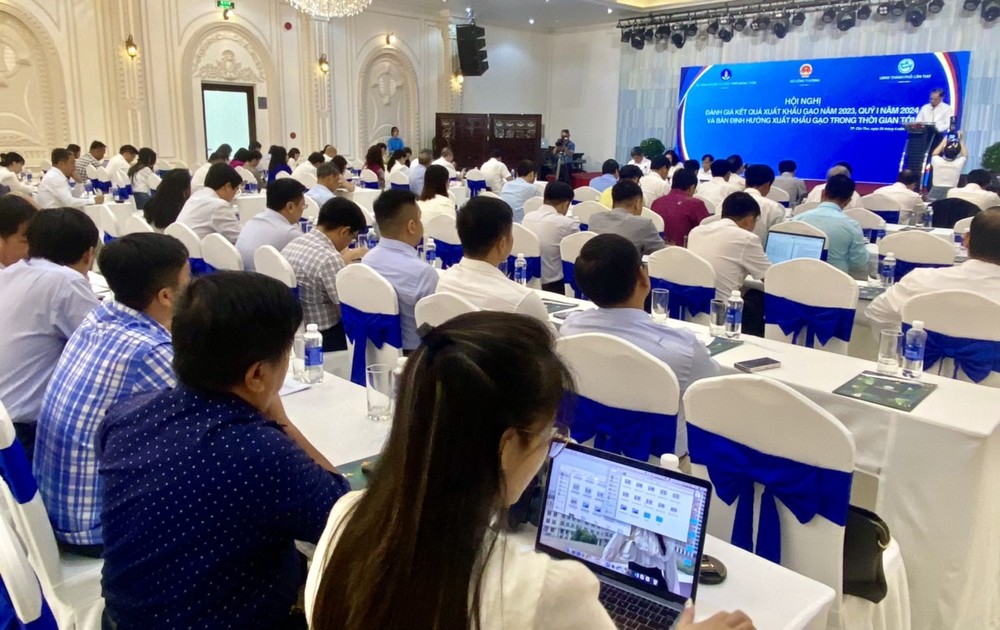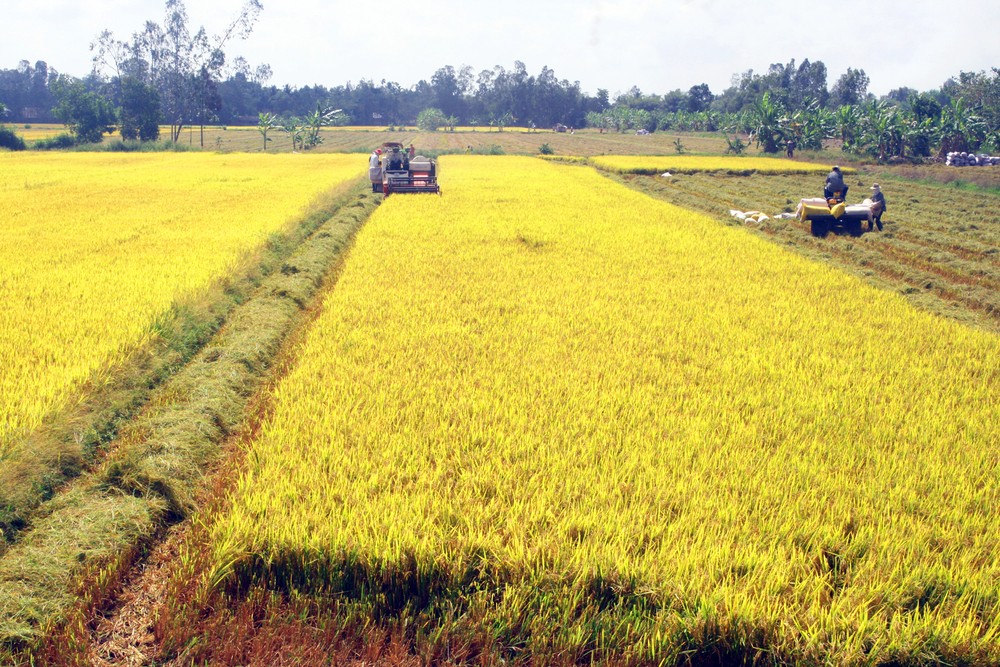
The Ministry of Industry and Trade today coordinated with the Ministry of Agriculture and Rural Development and the Can Tho City People's Committee to organize a conference to evaluate rice export results in 2023 and the first quarter of 2024 and discuss rice export orientation in the coming time.
Some 200 delegates from ministries, agencies, the Vietnam Food Association (VFA), and rice export traders attended the conference discussing and assessing the impact of climate change on rice production activities, rice output for domestic demand until the end of the year as well as judge the market demand, signals on policies and information from major rice import and export markets in the world.
VFA and rice export traders report on the situation of rice production, processing, and export business, and share forecasts of the world rice trade in the upcoming time.
According to Director Nguyen Anh Son of the Import-Export Department under the Ministry of Industry and Trade, by the end of the first quarter of 2024, rice exports will reach over 2.18 million tons, bringing nearly US$1.43 billion for the country. A ton of rice averagely fetches $653.9, increasing 17.6 percent in volume, 45.5 percent in turnover and 23.6 percent in price over the same period of 2023. Vietnam's rice has been exported to many countries dominating key markets with large consumption demand for rice.

In particular, the Philippines is still Vietnam's largest rice import market, accounting for 46.4 percent of the total volume and 45.5 percent of the country's total rice export turnover.
Some types of export rice are popular in the market such as fragrant rice of all kinds (ST24, ST25, DT8, Ham Chau, Nang Hoa), jasmine rice, japonica rice, 5-percent broken white rice. Good management of rice exports have contributed to the consumption of rice and commodity rice and ensured the benefits of rice growers according to current policies ensuring balance between exports and domestic consumption.
Moreover, good management is a contributory factor for stabilization of domestic rice prices. Vietnam has exported more and more high-value rice varieties such as fragrant rice, ST types, high-quality white rice, japonica rice.
Rice export traders make good use of market opportunities from new generation Free Trade Agreements (such as EVFTA, CPTPP), the market structure gradually shifts positively towards diversification. In addition to traditional markets, traders have been expanding in difficult markets like countries in Europe. This shows that Vietnam's rice has high quality; thereby, it can satisfy strict requirements from demanding markets, while also making good use of incentives from Free Trade Agreements.
In addition to above-mentioned achievements, Vietnam's rice export activities still have many potential risks. Traders' market diversification strategies are still limited as market development has not been commensurate with the industry's potential despite the government’s supports. Traders have not paid attention to development of links to build raw material areas as well as implementing traceability solutions and building a data information base to meet the requirements of the import market.
According to the Ministry of Agriculture and Rural Development, the Mekong Delta provinces are the main rice basket for exports while other regions for domestic consumption. Statistically, the amount of rice for export in the Mekong Delta provinces in 2024 is estimated to approximate 7.6 million tons, of which high quality rice group accounting for 3.2 million tons and fragrant and specialty rice group reaching 2.5 million tons.
To ensure food security and rice export in the context of unpredictable fluctuations in prices of many types of goods, including food, the Ministry of Industry and Trade will proactively coordinate with VFA to closely monitor the market in order to promptly make necessary recommendations and actions. The Ministry of Industry and Trade also requested VFA and traders to continue to seriously comply with legal regulations in domestic and foreign rice consumption. Especially for ensuring complete documents and traceability records in purchasing, consuming, exporting to ensure no commercial fraud and preserve brand and reputation of Vietnamese rice.
























